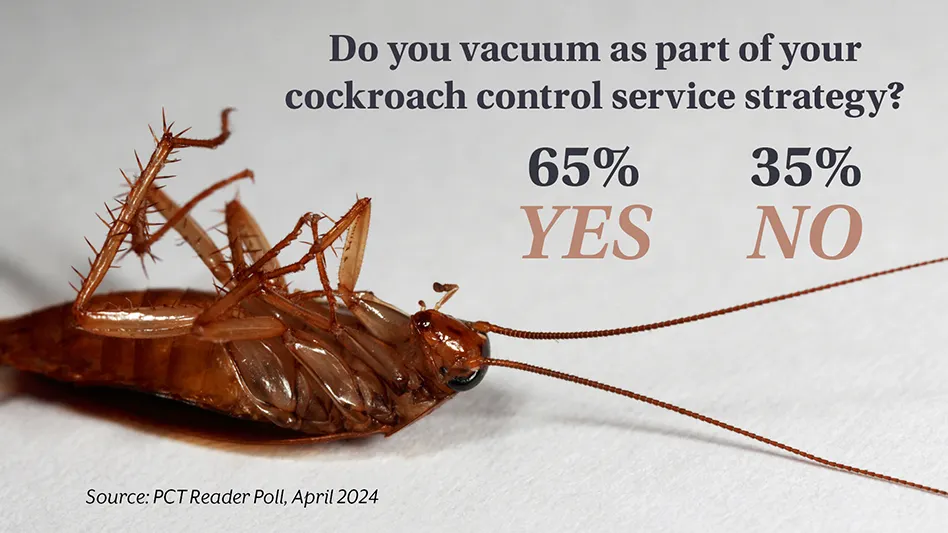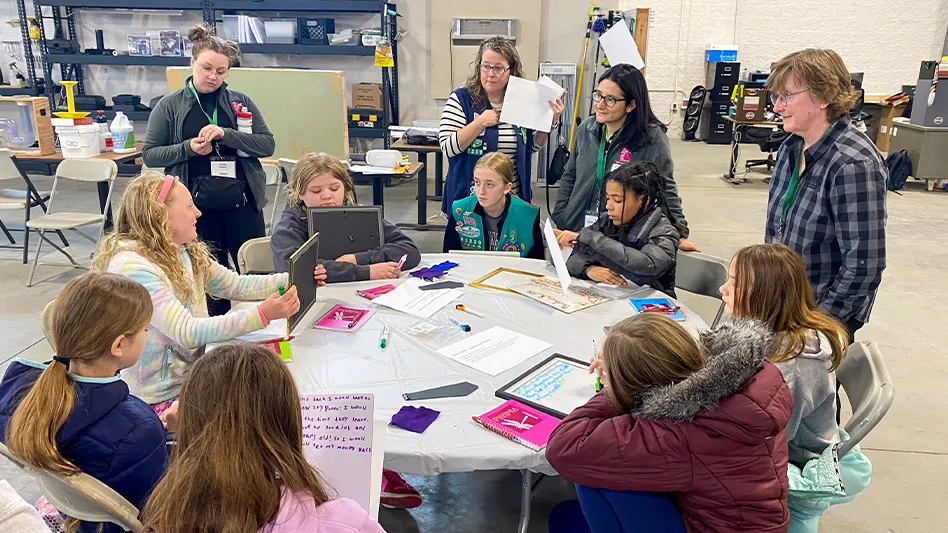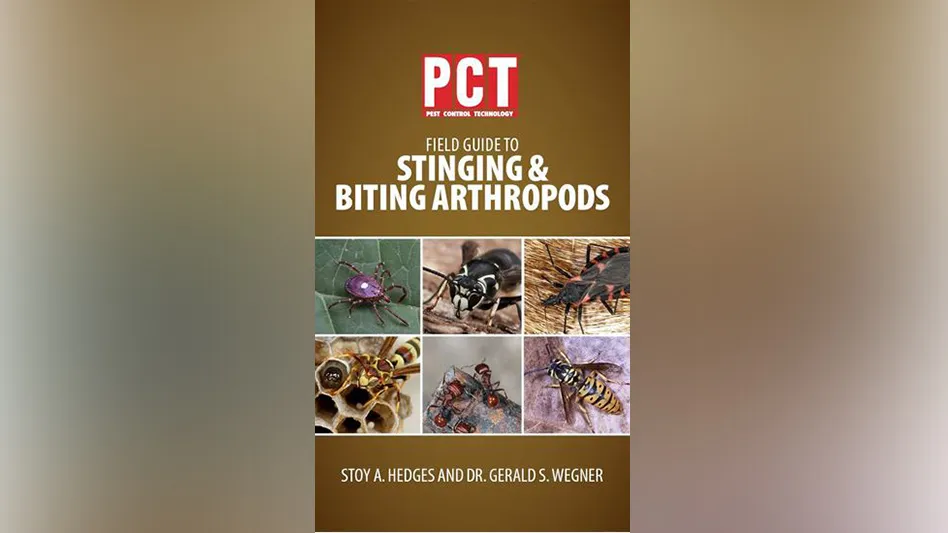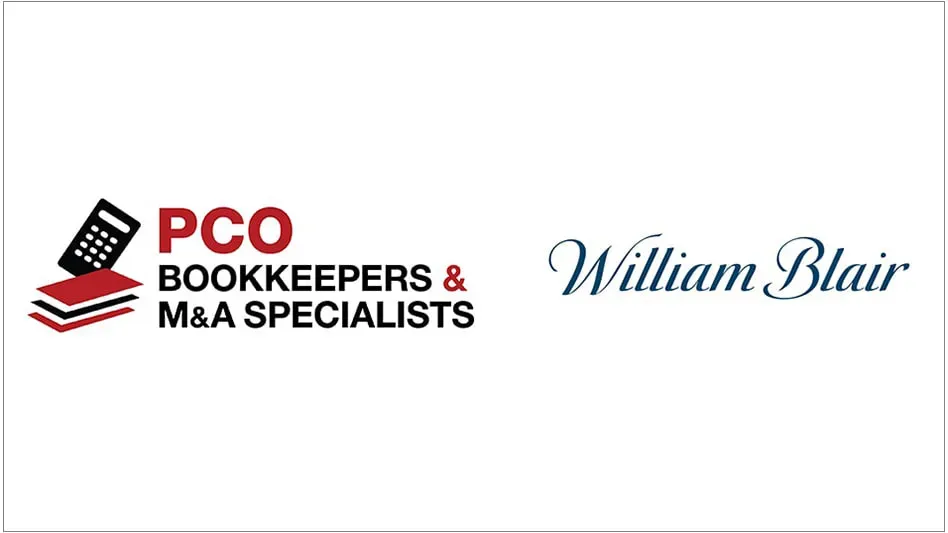
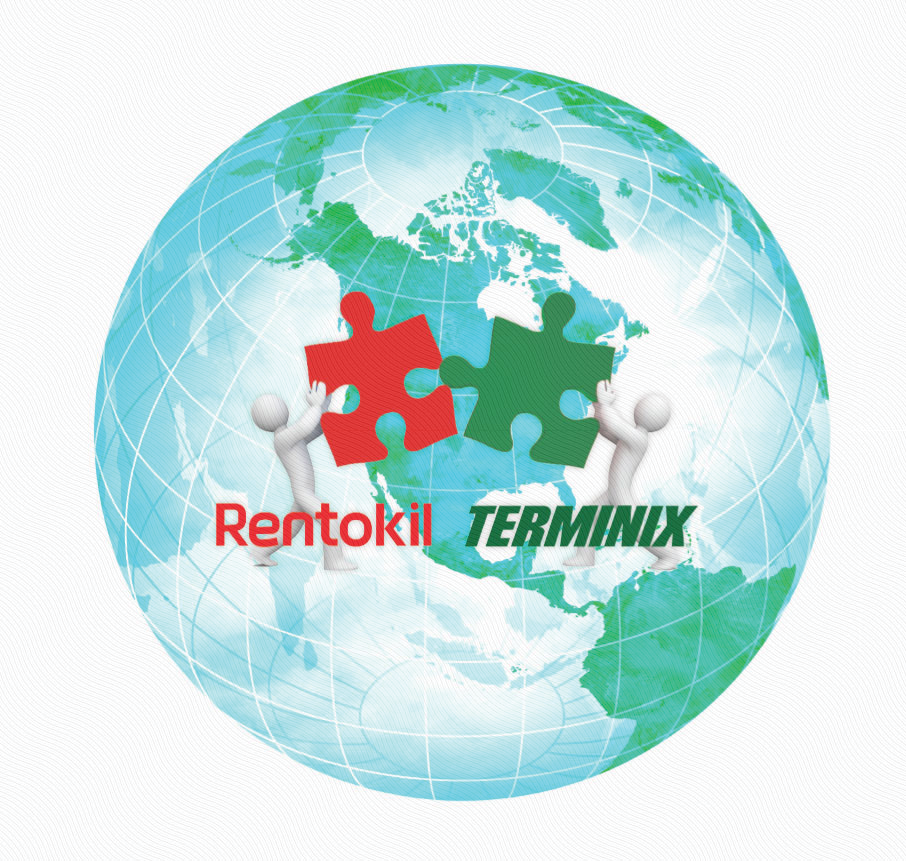
On Dec. 14, 2021, Rentokil dropped something of a bombshell. The company announced what it termed a “transformational combination,” with news of its intention to buy Terminix Global Holdings for $1.3 billion in cash and 643.3 million new Rentokil Initial shares in a deal that values the U.S. company at $6.7 billion.
A transformational combination indeed. In a single deal, the company becomes the largest pest control servicing company in the U.S., adding to its already existing global market leadership position.
The charts on the next page illustrate the transformation this will bring to Rentokil. For Rentokil as a company, pest control in 2020 accounted for 62 percent of its annual revenue. With the Terminix acquisition, this will increase to 75 percent, with a significant rise in its residential business (12 percent to 35 percent). Rentokil estimates 61 percent of its total annual revenue will come from North America, up from 44 percent in 2020. This leaves only 39 percent of the business split across the other 86 countries in which it operates.
However, it has not been easy sailing. First, Franchise Partners, a top 20 shareholder in Terminix, released a statement on Feb. 9 that it “does not find the value or the structure of the proposed [Rentokil Initial] offer attractive,” and that the Terminix Board of Directors should immediately add a “go-shop” clause to its agreement with Rentokil Initial. This appears to have fizzled out. Then there was the matter of clearing the Hart-Scott-Rodino Antitrust Improvements Act of 1976. On March 15, it was announced that the waiting period had expired the day before, so that completed the necessary antitrust process in the U.S. That meant the deal took a giant step towards being completed, but it does still require shareholders’ approval.
This is not the first time Rentokil has shocked the U.S. market with an eye-opening acquisition. The first was in 2006 with the acquisition of J.C. Ehrlich, then the fourth largest in the U.S., for $142 million. That was followed nine years later with the acquisition of The Steritech Group for $425 million. This acquisition propelled Rentokil into third place in the 2016 Top 100, a position they have held to this day. This is, of course, prior to taking the top spot (by a factor of almost two) over Rollins in next year’s Top 100.
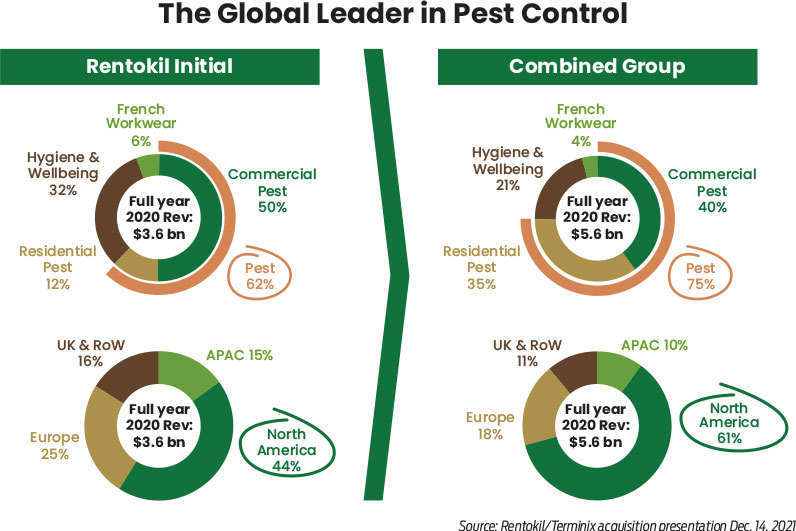
ABOUT RENTOKIL. The company began in the U.K. and was christened Rentokil in 1925. Woodworm (wood-boring beetle) treatments were the company’s primary service, followed by rodent control. It was not until the 1960s that moves were made out of its European base. By 1969 it had 3,100 employees spread throughout 27 countries. The first U.S. acquisition was not until 1978, but financially things did not initially go well, with losses recorded. A profit of more than $1 million was finally recorded in 1985. In the very first PCT Top 100 in 2002, Rentokil tied for the 23rd position with a revenue in 2000 of $18 million, with 14 locations and 202 employees.
(Author’s note: I found an intriguing piece of information while doing research for this article. In the late 1960s, Rollins made an attempt to buy Rentokil. Interesting indeed, because once this deal is completed, Rentokil will knock Rollins from next year’s top spot on the PCT Top 100.)
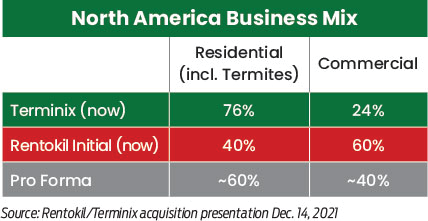
WHY TERMINIX? On the surface, the two companies coming together seems a near-perfect fit. When announcing the acquisition in December, Rentokil Chief Executive Officer Andy Ransom said it was the coming together of two outstanding companies with complementary strengths.
The combined business would give pest control a 75 percent share of Rentokil’s total business, about 4.9 million customers worldwide. In one transaction, Rentokil will acquire 375 locations in 47 states with 2.9 million new customers and 11,400 staff.
These sentiments were reiterated in the 2021 Rentokil Annual Report where Ransom stated: “By bringing together these two businesses, we believe we can become a clear global leader in residential, termite and commercial pest control, with each of us bringing our respective strengths to the combined business. Rentokil leads with technology and innovation in commercial pest control and has a global presence in nearly 90 countries around the world.
“Terminix has an outstanding U.S. business focused on residential and termites, and by uniting the companies with a best of breed approach (by which I mean creating a single management team from the best of both companies and, for example, harmonizing IT systems and selecting the best from both businesses), we believe we can become a genuine global leader in our industry.”
OPERATIONAL HURDLES. Bringing these two companies together is not going to be an easy task. As soon as the acquisition announcement was made, implementation planning began, with the goal of having the new organization operational from day one, which is predicted to be in the second half of 2022.
A structured plan is in place focused around 15 workstreams, including five major functions — operations, sales and marketing, finance, human resources and IT, with standalone projects that include procurement, fleet and property. All of this comes on top of Rentokil’s existing major IT re-platforming program that has been running for more than three years. To date, this has held back the introduction of the range of digital PestConnect services, which have proven popular in Europe.
Rentokil predicts these projects will yield cost savings of at least $150 million over the next three years, coming from back office property and administrative functions, branch office and route amalgamations. The danger (always) in such cases is the loss of staff, especially technicians, and also customers who do not wish to be part of the new operation.
One final regulatory hurdle: Prior to the deal closing, Terminix is charged with selling off the Norwegian operations of Nomor Holding AB, based in Stockholm, and Terminix UK — a company Rentokil was required to divest by the U.K.’s Competitions & Market Authority prior to its acquisition of Mitie Pest Control in October 2019.
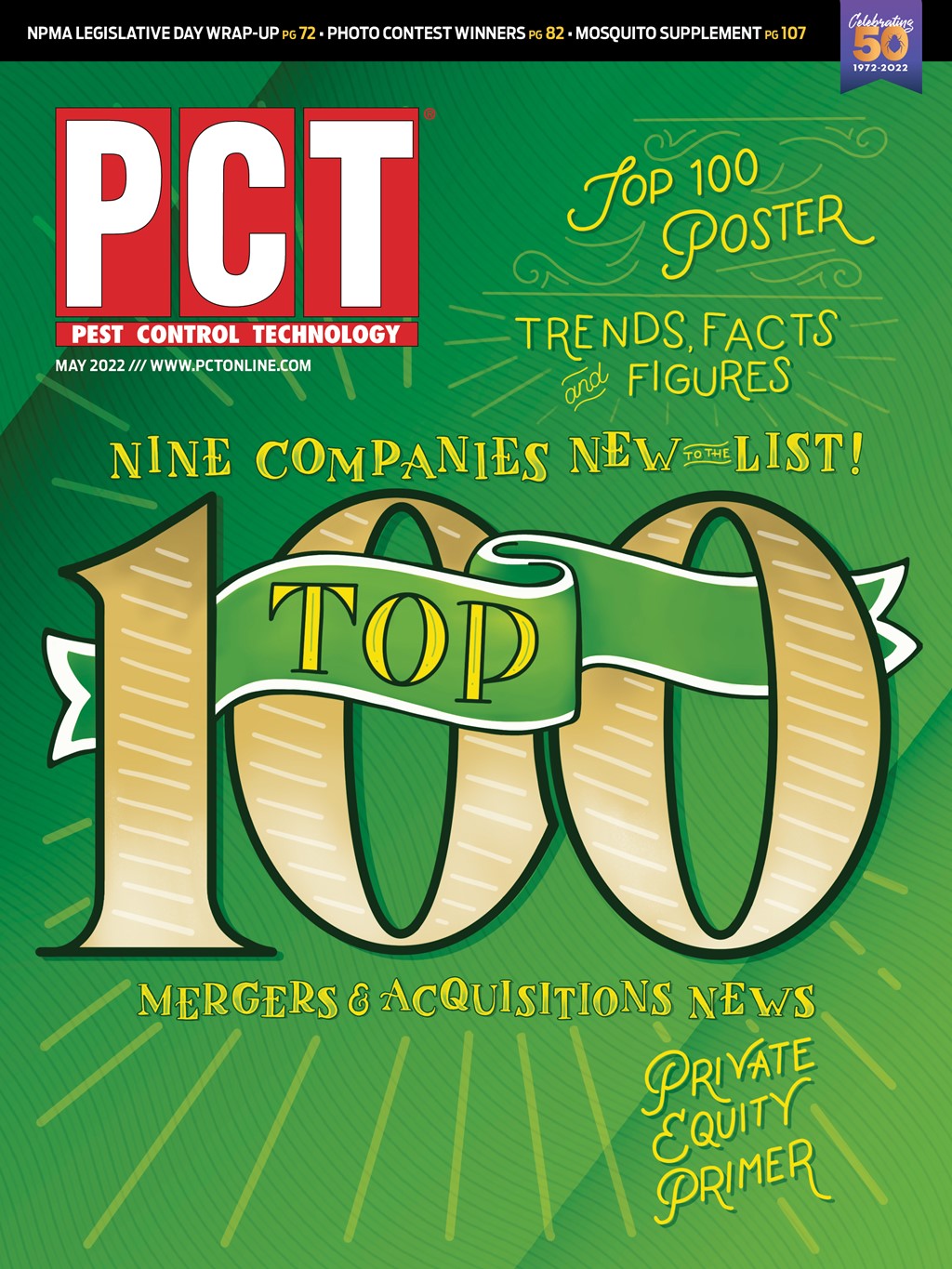
Explore the May 2022 Issue
Check out more from this issue and find you next story to read.
Latest from Pest Control Technology
- Gaining Control of Structure-Infesting Carpenter Ants
- Big Blue Bug’s Brian Goldman Receives Rhode Island Small Business Person of the Year Award
- UF Researchers Examine How Much Bait it Takes to Eliminate a Subterranean Termite Colony
- Women in Pest Control Group Continues to Grow, Provide Opportunities in the Industry
- NPMA Announces Results of 2024-2025 Board of Directors Election
- Massey Services Acquires Orange Environmental Services
- Hawx Pest Control Wins Bronze Stevie Award for Sustainability
- Abell Pest Control Highlights Growing Tick Activity Across Canada


